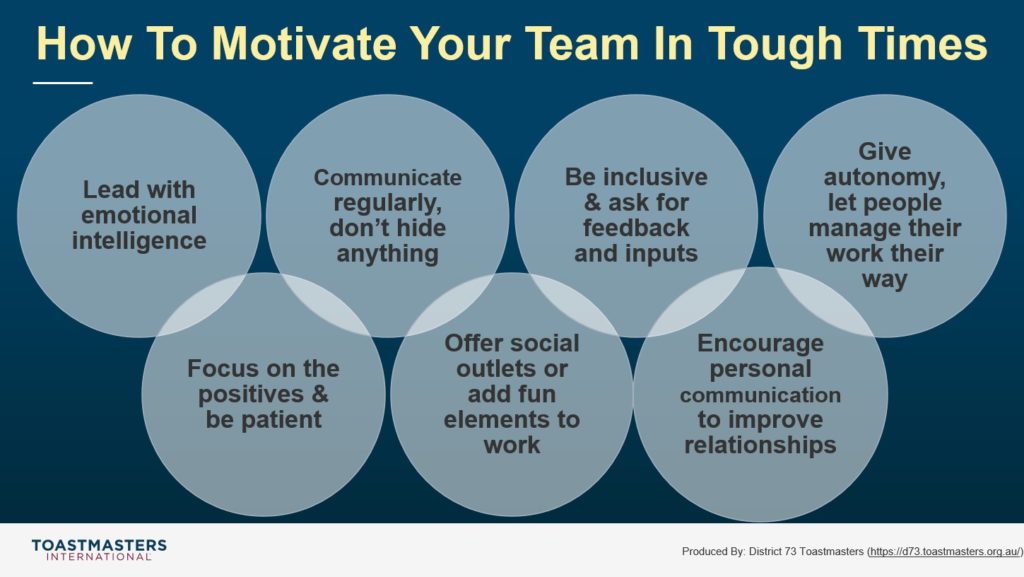
Unlock the Power of Great Leadership: Inspiring Your Team to Soar

Leading a team is a lot like being the captain of a ship. You are responsible for steering the ship towards the destination, navigating through rough waters, and keeping the crew motivated, so they put in their best efforts every single day. In the workplace, this means leading by example, building a positive atmosphere, and recognizing the unique contributions of each team member. Let’s explore some strategic and heartfelt leadership tips to help you motivate your dedicated crew – your team.
Set Clear Goals with a Vision
Imagine starting a journey without knowing your destination; sounds disorienting, right? The same applies to your team at work. Setting clear, achievable goals is fundamental. This doesn’t just mean telling your team what needs to be done, but also sharing why it matters. Connect their efforts with a larger vision. When the team understands the impact of their work, motivation naturally follows.
Communication is Your Compass
Effective communication skills are at the heart of great leadership. It’s about creating an environment where open dialogues are encouraged. Acknowledge that good ideas can come from any level and listen actively to your team members. Providing feedback is crucial, but remember it’s a two-way street. Regular check-ins and encouraging questions can fortify trust and demonstrate your commitment to not just progress, but also to the individuals who make it happen.
Empower Your Crew
True leaders recognize that every team member has something unique to contribute. Delegate tasks that play to the strengths of individual members. Empowering your team means trusting them to take the helm on certain projects. This not only fosters professional growth but also shows that you value their abilities, boosting their self-confidence and, in turn, their motivation.
Create a Positive Atmosphere
The environment of your workplace is the weather system all sail under. And just like sailors prefer sunny days, teams thrive in positive atmospheres. Make it a point to cultivate an environment where members are appreciated and supported. Recognize good work publicly, celebrate milestones, and ensure the team knows that their wellbeing is a priority.
The Anchor of Recognition
Humans have an inherent need to be recognized for their efforts. Do not let good work go unnoticed. Positive reinforcement can work wonders. Say thank you, offer constructive praise, and possibly consider an employee recognition program. Tangible rewards can also be effective but remember that the most lasting impact often comes from a genuine, heartfelt acknowledgment.
Encourage Professional Development
A motivated team is one that sees a path for growth. Investing in your team’s professional development is a critical aspect of leadership. Whether it’s offering training, mentorship, or the ability to take on new challenges, these opportunities show that you’re invested in their future. As they grow, they become more motivated and your team becomes stronger.
Be Adaptable
Even the best-laid plans encounter uncharted waters. A good leader needs to be adaptable. Sometimes, this means changing direction in the face of new information or adapting to the unique needs and work styles of your team. Flexibility can reassure your team that you are working with them, not against them, and are prepared for the future, whatever it may bring.
Encourage Team Bonding
A close-knit crew works better together. Encourage team-building activities that are not just all about work. Office outings, team lunches, and occasional team-building retreats can help build personal bonds among team members, which translates to better collaboration and communication at work.
Lead by Example
As a leader, you are the role model for your team. Your work ethic, attitude, and behavior set the tone. If you want a motivated team, be motivating. If you expect them to put in the effort, then be sure you are doing the same. When challenges arise, handle them with grace and resilience. Your team will take note and mirror these qualities.
Foster a Culture of Trust
In any good relationship, trust is key, and the relationship between a leader and their team is no different. Make sure to keep promises and commitments. When mistakes happen, own up to them. This transparency builds trust, and trust creates a solid foundation for a motivated, high-performing team.
Provide the Right Tools and Resources
Skill and will are, of course, vital to a team’s success, but so are the tools and resources they have at their disposal. Ensure that your team has what they need to perform their tasks effectively. Outdated equipment or inefficient processes can be demotivating and lead to unnecessary frustration.
Balance the Workload Fairly
An overburdened ship risks sinking; the same principle applies to team members. It’s crucial to ensure that the workload is distributed evenly and fairly. Team members who are overworked can quickly become unmotivated, so keep an eye on the workload and make adjustments as necessary.
In conclusion, motivating your team is an ongoing process that requires attention, care, and genuine effort. Leaders need to set clear goals, communicate effectively, foster trust, and appreciate their team while providing opportunities for growth. Creating a positive work environment, recognizing hard work, and being an example themselves are keys to keeping that motivational fire burning brightly. As the saying goes, a team that feels respected, valued, and inspired will move mountains – so go ahead, lead your team to its fullest potential.